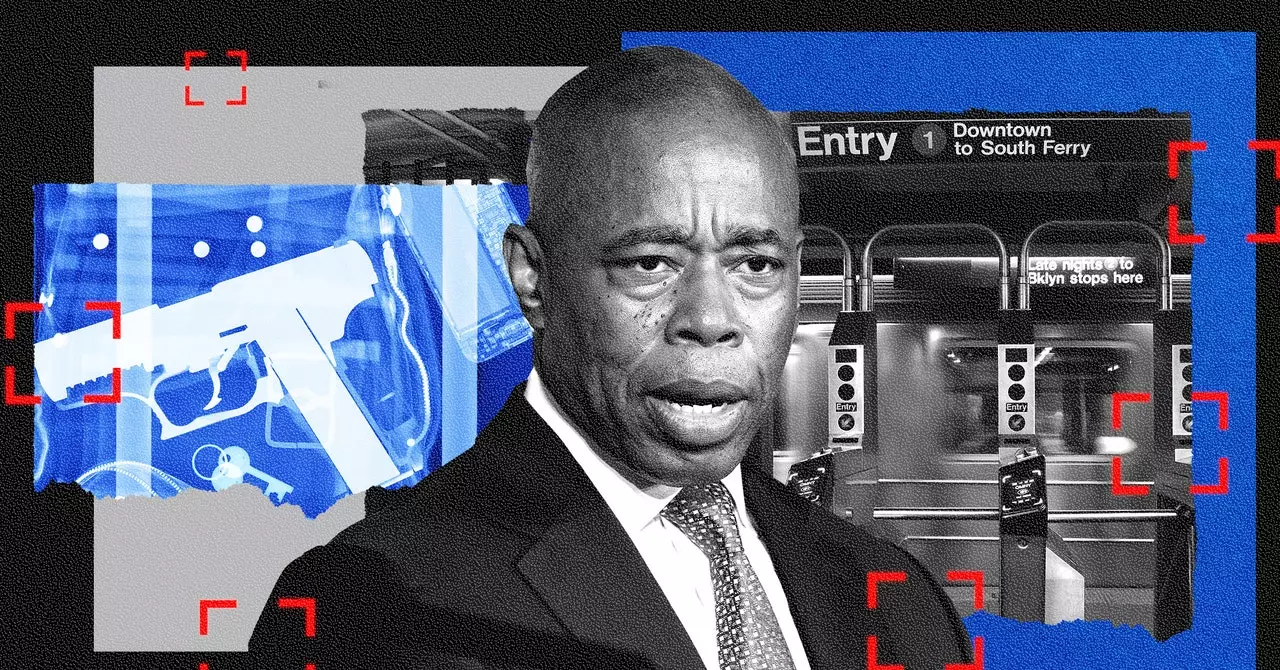It has come to light that Evolv, the technology company known for its weapons-detection scanners, has significant ties to former members of the NYPD. The overlap between Evolv and former NYPD officers raises concerns about conflicts of interest and potentially biased decision-making in the deployment of Evolv’s technology. The fact that key figures within Evolv have law enforcement backgrounds, including experience in high-ranking positions within the NYPD, adds a layer of complexity to the situation.
One such example is Dominick D’Orazio, who transitioned from being Evolv’s sales manager in the northeast US to becoming a regional manager. D’Orazio’s prior role as a commander in Brooklyn South, where he was responsible for overseeing officers like Banks, who was a deputy chief of patrol at the time, raises questions about the nature of his relationship with former colleagues. While Banks has denied meeting D’Orazio in his capacity as an Evolv employee, their history together as law enforcement officials cannot be ignored.
Potential Marketing Strategies Utilizing NYPD Connections
Evolv’s CEO, George, has leveraged the company’s ties to the NYPD as a marketing strategy, highlighting that a significant portion of their sales team consists of former police officers. This tactic aims to position Evolv as uniquely qualified to understand the needs of law enforcement agencies, particularly in a city like New York. However, the reliance on these connections to promote their technology raises ethical concerns about the impartiality of the decision-making process.
David Cohen, a former NYPD deputy commissioner of intelligence, further strengthens Evolv’s relationship with law enforcement through his position on Evolv’s Security Advisory Board. The strategic placement of individuals with law enforcement backgrounds within Evolv’s leadership and advisory roles signals a deliberate effort to navigate the public safety sector and secure lucrative contracts with government agencies.
Critics, including civil rights advocates and technology experts, have raised doubts about the effectiveness of Evolv’s scanners in the context of NYC’s subway stations. The sheer scale of the subway system, with 472 stations and approximately 3.6 million daily riders, presents a logistical challenge for implementing widespread weapons-detection measures. Sarah Kaufman, from New York University’s Rudin Center for Transportation, points out that covering every entrance with Evolv scanners would require extensive monitoring and could infringe on riders’ privacy rights.
Moreover, the draft policy outlined by the NYPD lacks specificity on how weapons-detection technology would be integrated into the subway system. The reliance on checkpoint supervisors to determine the frequency of passenger inspections and the availability of police personnel for such tasks raises concerns about the potential for arbitrary searches and increased police presence in commuters’ daily lives. The prospect of subjecting hundreds of thousands of passengers to searches each day is not only impractical but also raises questions about the balance between security measures and civil liberties.
Evolv’s track record in other sectors, such as schools, has also come under scrutiny for the technology’s shortcomings in detecting weapons. Reports of false alarms and misidentifications of harmless objects as potential threats have raised doubts about the reliability of Evolv’s scanners. Internal emails from a school district that uses Evolv’s technology reveal instances where everyday items, like binders, were mistakenly flagged as weapons. The lack of precision and accuracy in detecting real threats undermines the credibility of Evolv’s technology as a foolproof security solution.
The proposed deployment of Evolv’s technology in NYC subway stations faces significant challenges related to its efficacy, civil rights implications, and ties to former law enforcement personnel. The questionable connections between Evolv and the NYPD, combined with concerns about the technology’s reliability and potential intrusiveness, call into question the wisdom of adopting such measures in a complex urban environment like New York City. As the debate continues, it remains to be seen whether Evolv’s scanners will prove to be a viable solution for enhancing public safety or a controversial intrusion into citizens’ daily lives.


Leave a Reply